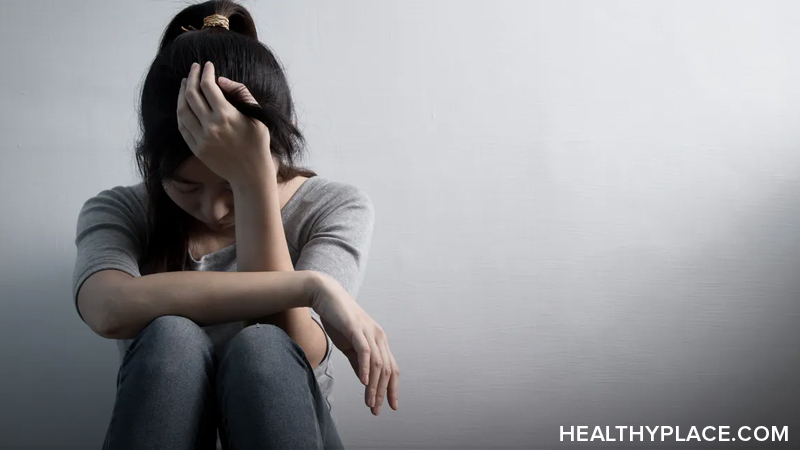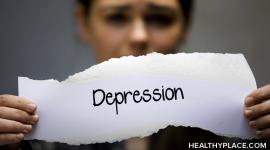Is Depression a Disability? Can You Get Accommodations?

If you live with depression, you might wonder if depression is a disability. Depression can indeed be a disability—sometimes. Let’s look at when and how depression is considered a disability.
Two depressive disorders are eligible for disability consideration: major depressive disorder (MDD) and persistent depressive disorder (PDD or dysthymia). The illnesses are similar, but in major depressive disorder, the symptoms are typically more severe whereas in dysthymia, the symptoms are longer lasting. Both can interfere in someone’s ability to function in important areas of their lives. When this happens, depression can be a disability.
When is Depression a Disability?
A diagnosis of depression doesn’t automatically mean someone has a disability. Your depression might be considered a disability when your symptoms are severe and significantly limit what you can do. All depression interferes with
- Daily functioning (completing tasks big and small)
- The ability to work
- Participation in family care and life
- Self-care
- Ability to cope with ordinary stress
- Capacity to handle obligations
- Motivation
When depression is extreme, it can become impossible to keep a job. A severe drop in energy plus extraordinary fatigue and trouble concentrating can make completing eight-hour workdays, five days a week, impossible. Reducing hours and days worked doesn’t help severe depression. Says WebMD (2015), “Untreated depression is responsible for more than 200 million days lost from work each year.”
To officially be designated a disability:
- A doctor must diagnose MDD or PDD
- The person must be receiving (or have received) treatment for depression
If these conditions are met, then SSA may consider awarding disability benefits.
How Does Depression Qualify as a Disability?
When determining if depression is a disability, the Social Services Administration (SSA) asks for evidence to support the disability claim. Every applicant must provide three types of documentation:
- Medical documentation of a diagnosis of MDD or PDD
- Documentation of the life limitations faced and marginal adjustment (difficulty adjusting to change)
- Indications of ongoing treatment with therapists and marginal adjustment
Evidence in any of these categories may include:
- Confirmation that depression has been severe enough to cause financial hardship
- Indications that you’ve tried unsuccessfully to work
- Proof of functional struggles such as simple decision-making, following instructions, concentrating and remembering information
- Demonstrations of difficulties relating to people, including supervisors and coworkers
- Documentation that you’ve been living in a highly structured setting and/or have had extensive medical treatment or therapy yet are still unable to function well
Sometimes, people don’t need social security benefits for depression, yet depression still disrupts their lives. In that case, it might be possible to receive accommodations from work or school.
Accommodations and Protections for Depression
Both the Americans with Disability Act of 1990 and section 504 of the Rehabilitation Act of 1973 protect the rights of people with depression who can work or attend school.
When depression affects a student’s (in the K-12 system or in college) ability to learn and function in school, they can seek a 504 plan that specifies accommodations that must be made to the learning environment so depression doesn’t negatively affect the student’s education. If a student’s thinking and activity level are slowed by depression, for example, they might receive extra time on tests. If concentration is difficult, students might listen to recorded readings rather than print. These are just two of the numerous accommodations that help students with depression learn and remain on track.
The ADA extends protections to people with depression in the workforce. As with other disabilities, it’s illegal for an employer to discriminate against people with depression. Further, if you have depression, you are legally allowed to take time off, without penalty, for treatment. While you don’t have to disclose your depression to your employer, you must do so in order to receive legal protection of your rights.
Depression VA Rating and Disability Benefits for Veterans
If you’re a veteran with major depressive disorder or persistent depressive disorder, you might be eligible to receive disability benefits from the US Department of Veterans Affairs (VA).
You’ll be asked to demonstrate that your symptoms began during active duty or developed because of another health condition resulting from your service. Additionally, you must show that your depression is causing employment problems and other difficulties.
When considering your application for disability and the evidence you’ve provided, the VA uses a rating formula to determine how disabling your depression is regarding work and social functioning. The VA ultimately assigns one of six ratings to indicate your level of depression disability:
- 100 percent disability
- 70 percent disability
- 50 percent disability
- 30 percent disability
- 10 percent disability
- 0 percent disability
VA benefits, then, aren’t an all-or-nothing affair. The financial benefits received per month will vary according to severity. It’s possible to be able to have some form of employment and still receive VA depression disability benefits.
Military or civilian, while depression can indeed be considered a disability, it can be difficult to prove that your own depression is severe enough to warrant government benefits. Knowing what documentation you need and working with a lawyer who specializes in disability can help you receive the income you need when depression interferes with employment.
See Also
APA Reference
Peterson, T.
(2021, December 30). Is Depression a Disability? Can You Get Accommodations?, HealthyPlace. Retrieved
on 2026, March 3 from https://www.healthyplace.com/depression/depression-information/is-depression-a-disability-can-you-get-accommodations



